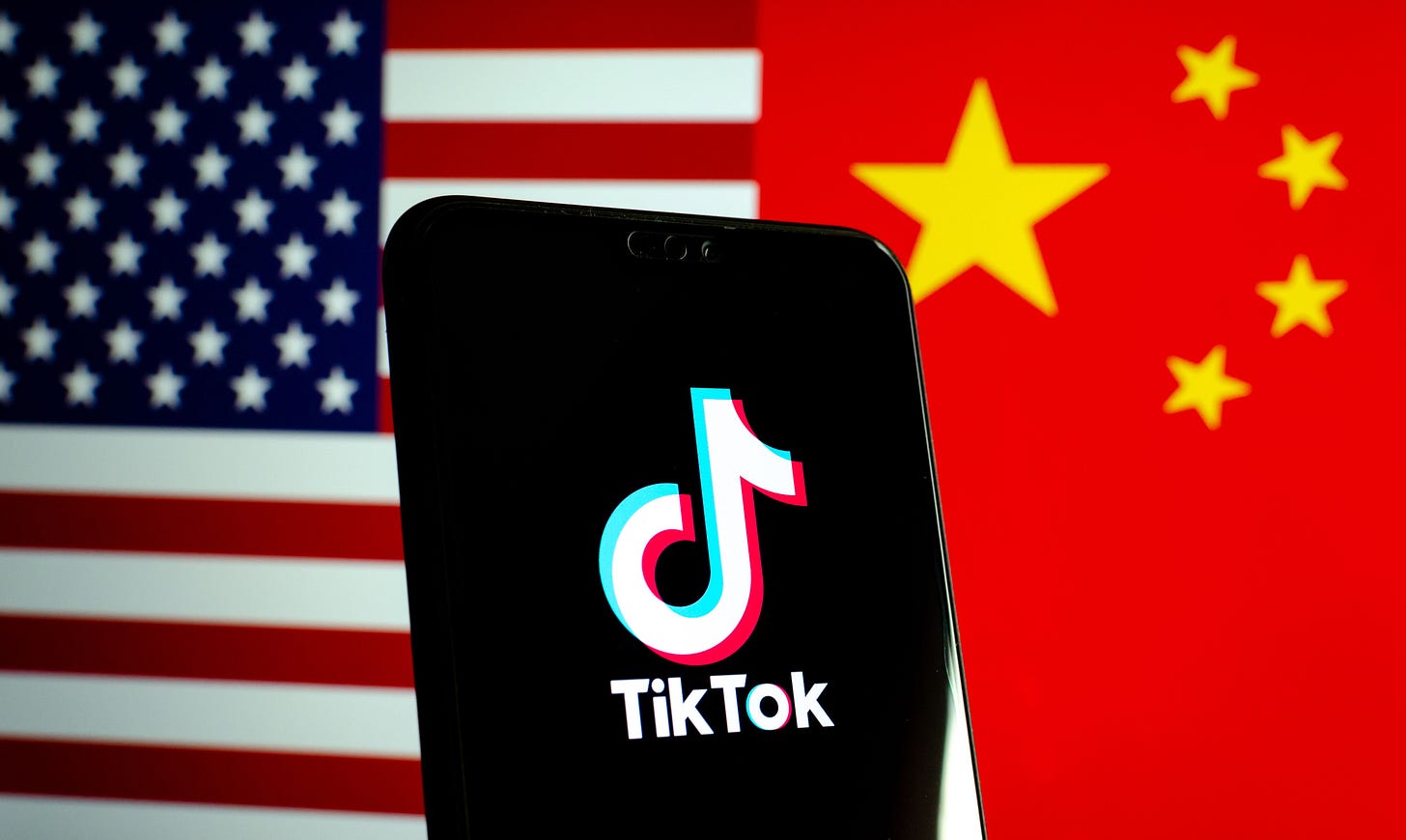The TikTok Conundrum
TikTok poses very little threat to U.S. residents individually but a huge potential threat to the U.S. as a whole
At the end of last year, I predicted TikTok would be banned or spun off inside the United States in 2023. In particular, I pointed out the two threats that lawmakers believe the app poses:
1. TikTok as a mass-surveillance tool. Both Democratic and Republican senators have made the case — and even proposed legislation in support of the belief — that TikTok is a tool of mass surveillance. In October, Forbes reported that a “China-based team at TikTok’s parent company, ByteDance, planned to use the TikTok app to monitor the personal location of some specific American citizens.”
2. TikTok’s influence over the American culture could be used to undermine American interests. Republican lawmakers Marco Rubio and Mike Gallagher recently wrote an op-ed in the Washington Post that, among other things, says that “The [Chinese Communist Party] could also use TikTok to propagate videos that support party-friendly politicians or exacerbate discord in American society. Such videos need not originate from CCP proxies — they could be created by anyone. With essentially unlimited data on user-made content at its disposal, Beijing can leverage it to fan the flames of domestic division.”
I’d also argue that TikTok, as one of the most addictive and widely used social media apps, contributes to a third, more amorphous threat:
It is highly accessible and addictive with unknown long-term consequences, and it disproportionately caters to and is used by adolescent brains.
As tensions between the U.S. and China mount on the heels of a Chinese spy balloon incident and a high-profile diplomatic meeting between the two countries at the Munich Security Conference, I believe that the chances of a TikTok ban or divestment are now even higher.
In the time since I started thinking about the effects of TikTok on me personally, to the effects of TikTok on the country, I’ve asked a bunch of experts this question: “Should I have TikTok on my phone?” The most common response was a non-definitive, complicated answer involving my risk tolerance. Only recently did I realize I was getting poor answers because I was asking a poor question.
Instead of asking if I should have TikTok on my phone, the more appropriate question is: “Should TikTok be on 100+ million American phones? Who should decide? And why?
The TikTok issue is complicated because all of TikTok’s threats are collective action problems. Individually, TikTok poses no bigger threat than many popular social media apps.
Sharing your data is an inherent part of the modern mobile phone experience. Whichever app led you to my writing is almost certainly harvesting troves of your data, much of it unnecessarily. But individually, the personal data of the average user is of little use to any organization or government.

On top of that, TikTok is an indispensable tool for any person or organization trying to build or maintain a brand. It’s a must-have channel for distributing products or ideas, and when executed properly, it is one of the highest ROI marketing channels with the highest upside of virality.
It also is its own thriving economy:
Top creators can earn tens of thousands of dollars for a single sponsored post. For brands, it’s even more lucrative. “For every million dollars that brands spend on influencer marketing on TikTok, they’re seeing $7.2 million in sales over the first 90 days,” says Seth Kean, CEO of ROI Influencer, a New York City company that measures engagement and sell-through across social media platforms. “That’s 24% better than a combination of TikTok’s peers, which includes Facebook, Twitter, and YouTube.” The next best performer, Instagram, drives $6.6 million in sales for every million spent.
27.3% of TikTok users will make purchases via the platform, up from just 5.7% in 2020. By 2026, that number jumps to 39.9%, even as TikTok usage increases.
Over 7 in 10 TikTok shoppers worldwide are inclined to buy when stumbling on an interesting product, and 6 in 10 use the app for shopping inspiration.
It’s only collectively that TikTok’s threats become more meaningful, whether it is a foreign government collecting data from a third of U.S. residents or manipulating the TikTok algorithm to sew political discord.
So while you may wonder if you should use TikTok, the more relevant question is whether any of us should use it.

